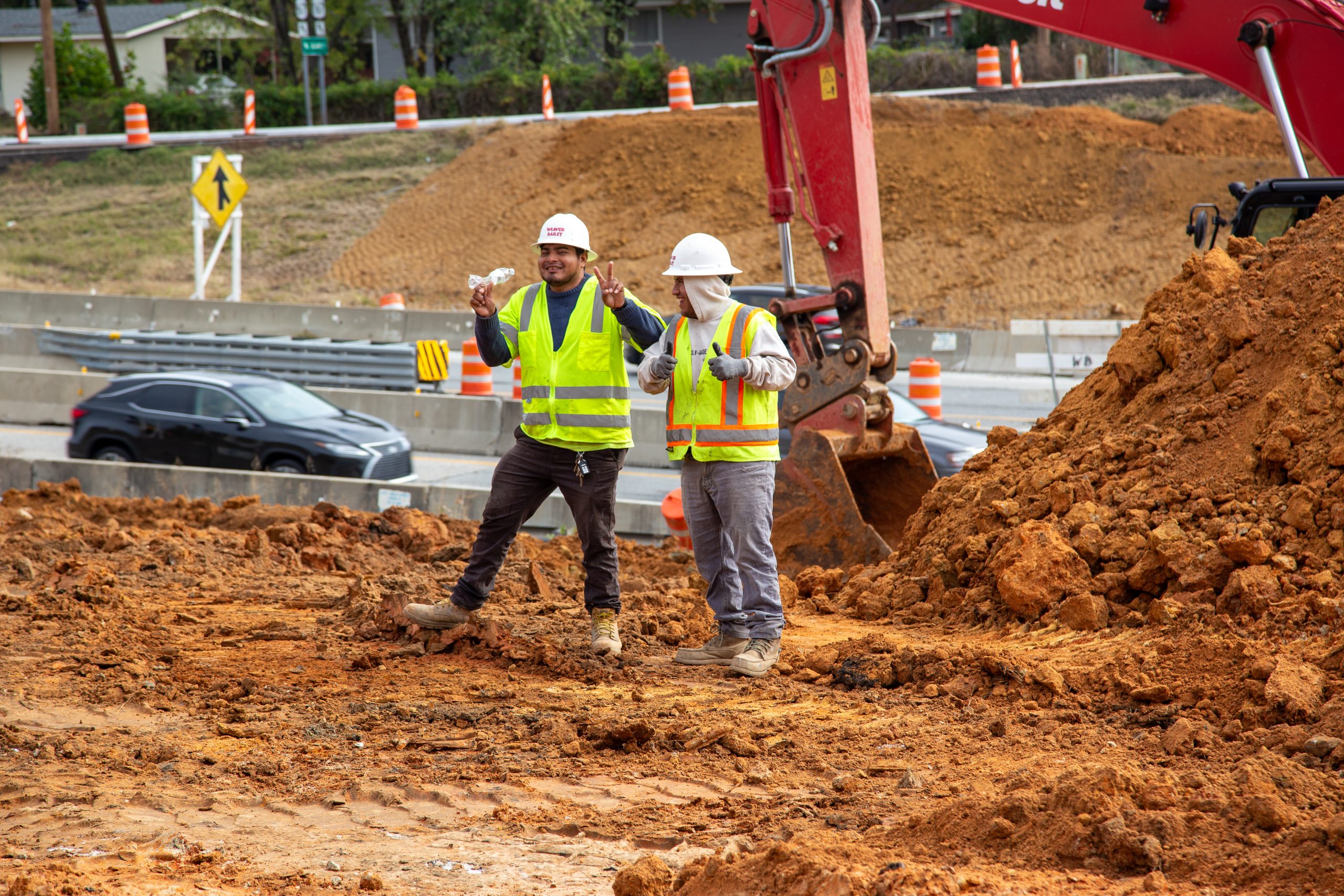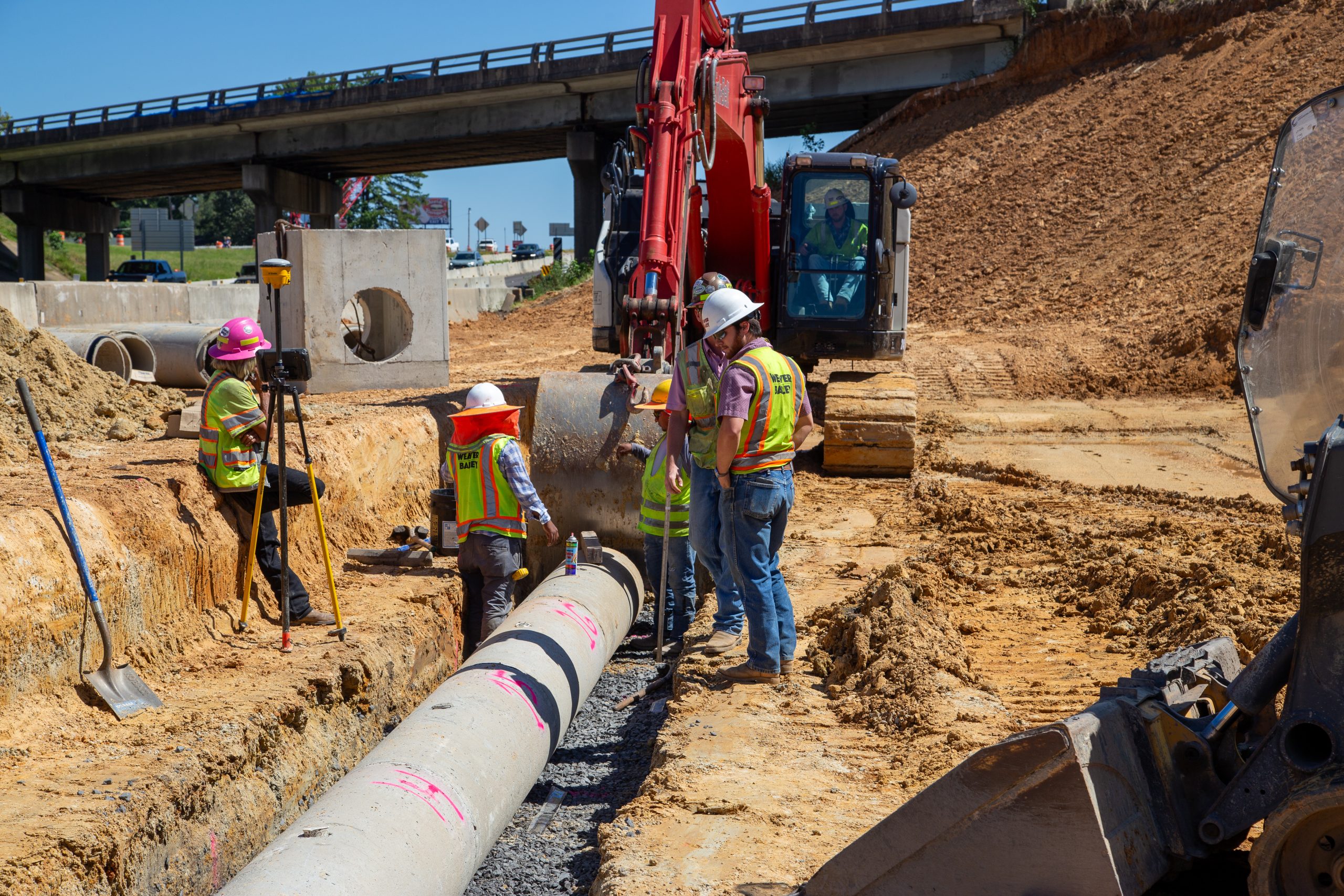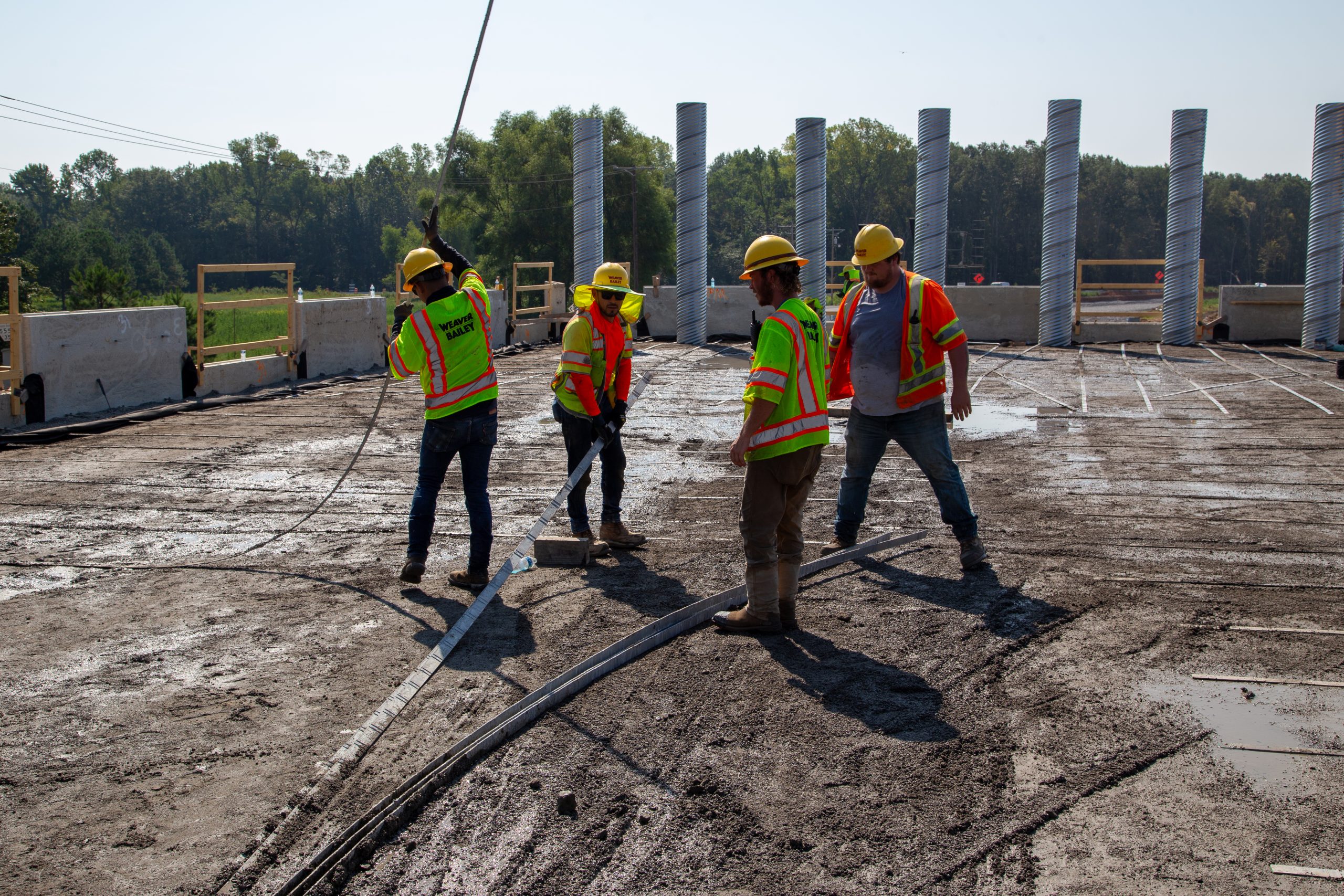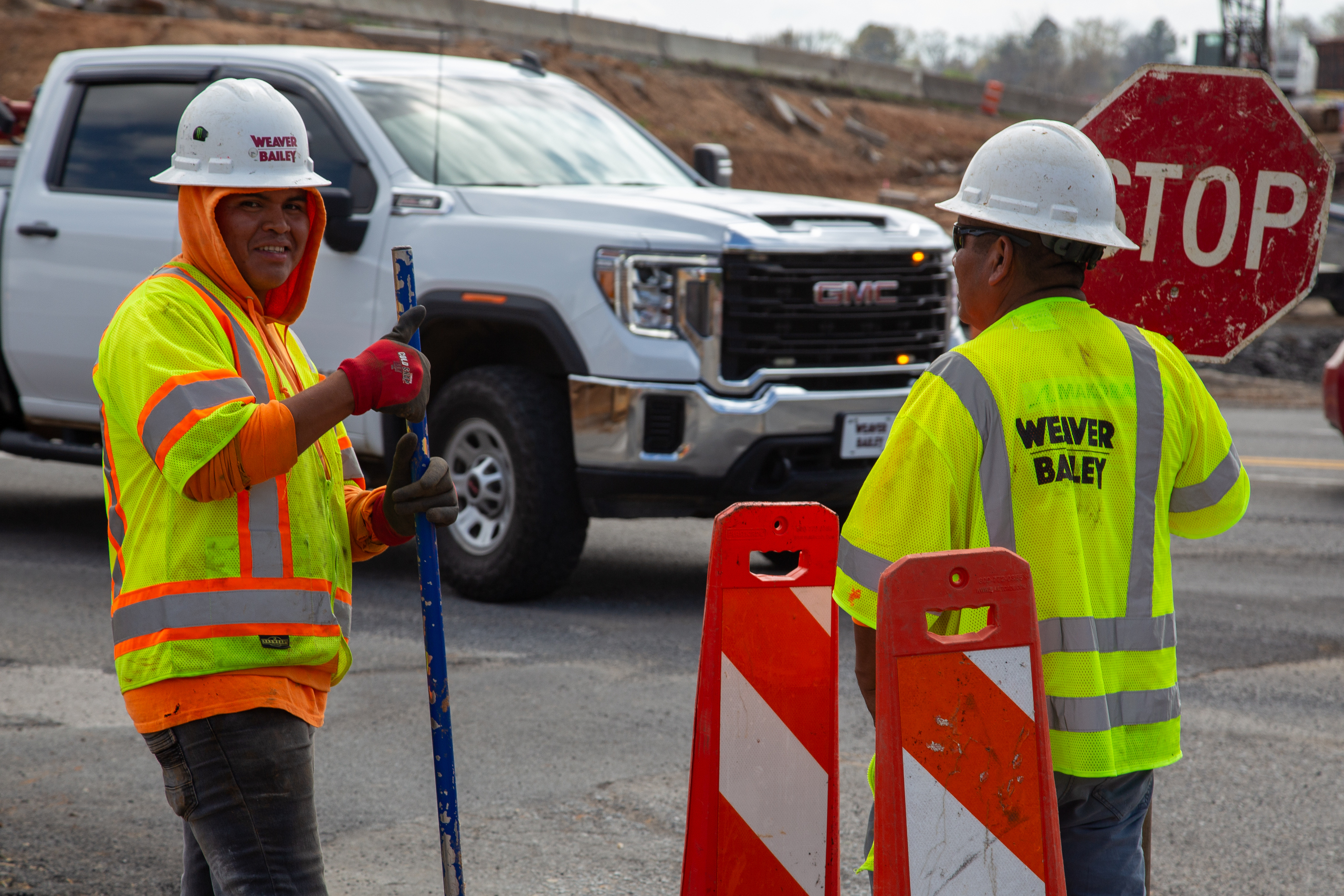To make a positive difference in the lives of our people, customers and community by delivering the highest quality construction solutions.
About Us
MISSION STATEMENT
CORE VALUES
Safety – We care for each other. We will do everything in our power to ensure our employees are safe.
Teamwork – We work better together. Collectively we thrive when we include, respect and empower one another.
Integrity – We do what is right. Trust and accountability define our character.
Quality – We provide the highest quality product in the industry.
Innovation –We strive to identify better means and methods to provide quality construction.
EXCELLENCE IN CONSTRUCTION SINCE 1960
OUR HISTORY
THE BEGINNING
Weaver-Bailey Contractors, Inc. originated in 1960 when brothers-in-law Voyne Weaver and Joe Bailey began contracting subdivision work in Little Rock, Arkansas. The company’s first milestones came in 1967 when the young business incorporated as Voyne’s youngest brother Fred Weaver joined the company to serve as President, and middle brother Charlie Weaver purchased an interest in the business.
In the 60s Weaver-Bailey worked on various projects; many subdivisions, missile bases, and even the boat ramps at Greer’s Ferry had concrete poured by Weaver-Bailey.
In 1969, in response to the increasing demand for a quality concrete product, the Weaver brothers and Bailey bought into L&S Concrete; a small, not yet operating, ready-mix concrete business which had one location and six concrete trucks. Charlie immediately began growing L&S by increasing the equipment fleet, personnel, and placing plants at centralized locations throughout central Arkansas. Between Weaver-Bailey and L&S, the Weaver family had invested their future in the quality of the concrete that was now going into roads and sidewalks in Arkansas.
1970S AND 1980S
In 1971, with the ready-mix operation fully functional and expanding, Charlie Weaver introduced the state of Arkansas to slip-form concrete paving methodology with the purchase of the first slip-form curb and gutter machine. With this method, Weaver-Bailey was instrumental in bringing this innovative methodology to residential developers throughout the region; as it offered both increased productivity and a higher quality product.
The Little Rock Airport began to see Weaver-Bailey concrete on its tarmac starting in 1985, starting a trend that continues today with new runways and taxiways being added in 2024. Projects around Little Rock, North Little Rock, LR Air Force Base, Ft. Smith, Hope, even West Memphis were done by Weaver-Bailey in this time period as well.
In 1986, Charlie acquired the outstanding shares in Weaver-Bailey as well as purchased Gilliam Brothers Ready Mix to compliment the already thriving ready mix operation. With the acquisition, the group of family businesses were soon able to provide a variety of products and services including ready mix concrete, earthwork, underground utilities, and concrete paving for residential developments and businesses. Throughout the 1980’s Charlie continued to manage the ready-mix operations while Charlie’s son Don Weaver assumed the role of Vice President and Chief Estimator and turned the company’s attention toward major infrastructure projects.
1990S AND 2000S
During the early 1990s, Weaver-Bailey continued to provide quality earthwork, subsurface drainage, and curb and gutter products across the state of Arkansas. That shift in focus to major infrastructure would lead in 1997 to the company being awarded the contract to build 4 miles of I-49 (formerly known as I-540) near Fayetteville, Arkansas, as well as the 7-mile Pine Bluff Bypass. These projects set the stage for the company’s emergence in the Highway Construction industry.
In 1998, after 31 years, Charlie sold his interest in the ready-mix operation. The following year, he opened a quarry on his ranch near El Paso, Arkansas and founded Webco Mining. The quarry produced tons of quality crushed stone critical to a variety of aspects of infrastructure advancement in Arkansas through 2016 and provided an advantage for Weaver-Bailey in securing quality rock materials. Charlie also had a new office for Weaver-Bailey constructed on his land in El Paso where it moved in the early 00s from its previous North Little Rock home on Smokey Lane.
In 2002 Weaver-Bailey was awarded the largest contract to date in the history of the Arkansas Department of Transportation, the $57 million rehabilitation and expansion of Interstate 40 between Interstates 30 and 430, one of the busiest intersections for trailer trucks in the nation. By this point Weaver- Bailey was showing its ability to consistently deliver quality solutions for these huge projects.
In 2010 Weaver-Bailey took on their most ambitious project yet, the $100 million flyover project at the intersection of Interstates 430 and 630 known as the “Big Rock Interchange.” The five-year project was completed ahead of schedule despite some unforeseen issues and stands as a testament to Weaver-Bailey’s capabilities. Interstates 430, 630, 40, and 30 by this point had all been worked on by the company.
TODAY
Charlie is now Chairman of the business while maintaining an active role in management. Don is President and manages the day to day operations. Together, they have over 50 years of civil construction experience.
In 2021, Weaver-Bailey moved its main office once again to a facility in Conway, Arkansas with much more expansive office spaces and attached garage and mechanic bays for its ever-expanding roster of light and heavy machinery and personnel. In the 2020’s Weaver-Bailey has already worked on projects on Highway 67-167 in Jacksonville, runways at Bill and Hillary National Airport, in Sherwood rebuilding a road section of Country Club Road, another section of 67-167 near Cabot, and several other smaller projects around the state.
Weaver-Bailey Contractors currently employs over 100 people and is recognized as the largest main-line concrete paving company in the state of Arkansas. The company continues to deliver a quality product to the Department of Transportation, FAA, and multiple cities and municipalities.




